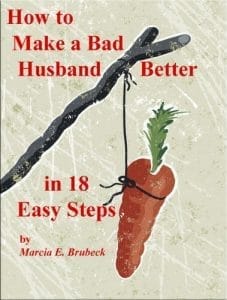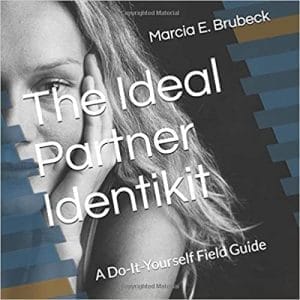
How to Feel Less Alone
As a therapist, I find that my biggest single job is help people connect with themselves and each other. In fact, you will have trouble connecting with anyone else if you cannot connect with yourself. You must be able to touch base with your heart, your mind, and all parts of your body and know immediately how you are feeling and what you need to do next.
People who are unaccustomed to checking in with themselves in this way are often relatively oblivious to their feelings—what they like and don’t like, what they want and don’t want. Or, if they are attuned to their inner and outer feeling states, they are reluctant to give other people news bulletins and consequently suffer from the frightening illusion that they are somehow different from everyone else. As a result, they may feel exiled, alone, marooned with their problems.
From my armchair, of course, I can see that it’s not so. If there’s one thing I have learned in my line of work, it’s how very similar people are. We all have more in common than not. As far as I am concerned, people’s worries and fears always reflect life stage issues and natural human responses to various specific situations.
Still, no matter how many interests and attributes the two of you share, it is possible to be more alone in a relationship with someone else—even your live-in mate—than you would feel living in isolation in a one-room log cabin in the wilderness.
The best precaution against being brutally lonely in a relationship is to learn how to survive in the log cabin before you move in with any partner. Before you marry and/or cohabit, you must know how to take care of yourself.
I don’t just mean financially or in terms of housing, food, clothing, and other necessities of life. I mean that you must know how to keep yourself happy. You are, after all, in charge of your emotions.
When you first live alone, ideally as a young adult, you learn about the conditions that are optimal for your personal well-being. You explore your tastes and preferences in every conceivable area, from home furnishings and television programs to the amount of sleep you need and the kinds of noise that bother you.
At the same time you discover that, as the custodian of your happiness, you can be concerned and sympathetic without forfeiting your peace of mind when someone you care about is in the doldrums nearby. If others are wildly upset, you can detach enough to steer clear of their craziness. You may even decide to put physical space between them and you. Their distress is their problem, not yours, to deal with, after all.
As you are responsible for your happiness, others are responsible for theirs.
In relationships, and especially in marriages, it is critical for both parties to respect boundaries—that is, for both to be able to distinguish one person’s business from the other’s. Some examples may help, with suggested ways of responding appropriately.
Your spouse, furious, abruptly ends the conversation and marches off to another room to be alone. Rather than chase him or her down the hall, you decide to withdraw and not to pursue the argument further at this time. You wait for a signal that he or she feels calmer before you try to resume the dialogue.
A close relative of your spouse’s has just become seriously ill or has died. Rather than take action on your spouse’s behalf, you wait for instructions. When in doubt, you ask for direction and listen to the answer. In the meantime, you distract yourself and provide for your own needs.
Your spouse is ill. In your opinion, he or she is not addressing the matter appropriately. After you express your concern and your fears, you ask whether there is anything you can do. Then you back off and try to relieve your own anxiety.
If you have doubts later about what your partner wanted from you at some critical moment, ask, “In the future if we hit situations like that one, what do you want me to do?” Remember that when you provide unsolicited help, you are actually attempting to exert control. It’s not help unless the other person asks for it.
Partners need to exhibit independence in some areas of their lives and interdependence in others. Each of you must be able to survive without the other. Total dependence is no good for your relationship or for either of you as individuals.
A different way of approaching the distinctions between dependence, independence, and interdependence is to consider that in healthy partnerships, people participate in some aspects of each other’s lives but not all. Ideally you and your spouse have some activities and social life apart from each other. These protect the relationship between you by offering other outlets for stress.
It is important for you and your spouse to have lives of your own so that if you wind up going your separate ways, either by mutual agreement or because one of you is hit by a truck, each of you will be able to fend for yourself. In this connection it is important to know how to be your own best friend at all times. Don’t expect someone else to make you feel better. The job is yours.
A few tips can help you adjust your mindset when you feel overwhelmed.
If you feel lonely and generally invisible, you may want to reorient yourself in relation to the wider world. Chart your fortunes relative to those of people elsewhere on the planet. Read the newspaper. Become a participant observer. In the United States you can listen to National Public Radio. Or watch CNN for the latest news. Bear witness to the times we live in.
Try locating your problems in the context of the twenty-first century as if you were lying on your back at night in a field, looking up at the stars. How small they seem in the immensity of the sky!
Focus on the mundane activities of daily life, which consume so much of our waking hours. Take as much pleasure as you can in bathing, washing the dishes, feeding the cat, and shopping for groceries. Let your senses enrich your experience of these rituals.
Don’t neglect expressions of love and concern. Do you stay in touch with other family members and far-off relatives? Do you reach out to colleagues and close friends during the week by phone and email? People need other people in their lives.
Don’t let your worries rob you of joy and gratitude. Focus on what you have rather than on what seems to be missing.
By nurturing yourself, focusing on your daily routine, appreciating the moment at hand, and staying connected with people you care about, you provide for your own well-being. When your partner does the same, both of you safeguard your relationship while acknowledging that you each need some autonomy.





